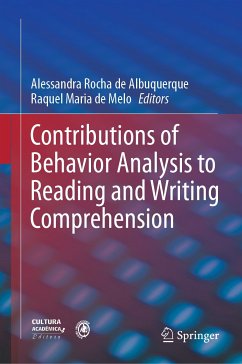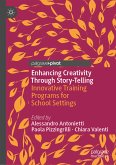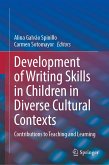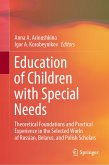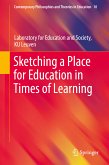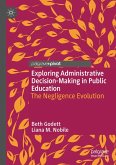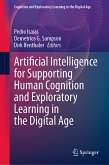The book is divided into four parts. The first part presents the theoretical framework and the historical context in which the teaching program was developed by the group led by Drs. Julio Cesar de Rose and Deisy das Graças de Souza, currently organized in the National Institute of Science and Technology on Behavior, Cognition, and Learning (INCT/ECCE). The secondpart describes the modules that make up the Learning to Read and Write in Small Steps teaching program. The third part presents results of empirical research conducted with children with intellectual and hearing disabilities and illiterate adults. Finally, the fourth part presents contributions from other areas of knowledge - such as speech therapy, linguistics, and education - to the understanding of reading and writing and possible dialogues between them and behavior analysis.
Contributions of Behavior Analysis to Reading and Writing Comprehension will be of interest to researchers and students in the fields of psychology and education interested in the application of behavior analysis to teaching and learning processes. It will also be a valuable resource for professionals directly working in educational institutions, such as elementary school teachers and psycho-pedagogues.
The translation of the original manuscript in Portuguese was done with the help of artificial intelligence. The present version has been revised technically and linguistically by the authors in collaboration with a professional translator.
Dieser Download kann aus rechtlichen Gründen nur mit Rechnungsadresse in A, B, BG, CY, CZ, D, DK, EW, E, FIN, F, GR, HR, H, IRL, I, LT, L, LR, M, NL, PL, P, R, S, SLO, SK ausgeliefert werden.

